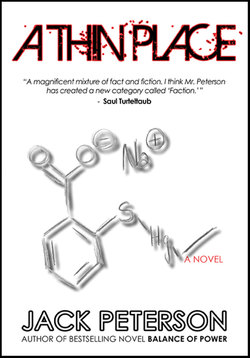Читать книгу A Thin Place - Jack Peterson - Страница 14
На сайте Литреса книга снята с продажи.
Chapter 8
ОглавлениеJuly 2, 1927
Chicago, Illinois
The end of the first week of his new life in Chicago, Trent found himself sitting quietly on an old tattered chair he inherited from his father, his arms resting on a card table that doubled as both a dining and study area. By default, the only chair he owned was the focal point of his one-window studio apartment. Perched on the second floor of a very weathered brick four-story walk-up, he was within easy walking distance to the University of Chicago.
Trent’s eyes strayed down, refocusing on a newspaper resting on his card table. Badly wrinkled, the paper was Australian, given to him the day before by a fellow first-year medical student he met during orientation earlier in the week. Even though it was over three weeks old, his new friend was excited to share the news from home. The front page had photos of the landing of a Fokker F.VIIB that had completed the last leg of a seven thousand mile journey that started in San Francisco and ended in Melbourne ten days later. Even now, Trent had no idea what a Fokker was, and he didn’t care. It was the article on the back page that still intrigued him.
Trent had read the article several times over and was about to do it again when a knock on his door interrupted. He expected the interruption. It was Will Williams, his new Australian friend. Trent yelled out. “It’s open!”
At six foot and over two hundred pounds, Williams was built like a tank. An avid rugby player, he barged through Trent’s door like he was in a scrum. “Are you ready?”
Trent smiled, amused by his friend’s likeable aggressiveness. “I am. Where are we having lunch?”
Ignoring the question, Will scanned the apartment. He spotted his newspaper. “Are you finished with my paper?”
Trent looked down. A few seconds passed before he looked back at Will. He took a deep breath, nodding slowly.
Looking a bit curious, Will tested. “What’s up with the paper? I know it wasn’t the Fokker that got you all excited!”
“Did you read the article on the back?”
“I didn’t get that far. After all, you took my paper.”
Trent smiled, picked up the paper, and handed it to Will. “Here, take it with you. It’s a short article. You can read it over lunch.”
Lunch was at a small Italian deli on 58th Street half way between Trent’s apartment and the University. The best part was there was a speakeasy behind the storeroom. Will finished his sandwich before Trent had swallowed his second bite, then turned his eyes to back page of the newspaper and began to read.
Bundaberg, North Queensland Australia: In January 1928, in the early stages of an immunization campaign against diphtheria, Dr. Ewing George Thomson, Medical Officer of Health of Bundaberg, began the injections on January 20th of 21 children without ill effect. On January 27th, the same children were injected with their booster shots. Of these children, eleven died on the 28th and one on the 29th.The consideration of all possible evidence concerning the deaths at Bundaberg points to the injection of living staphylococci as the cause of the fatalities.
When he finished reading the article, Will looked back to Trent. “So what’s your interest in all this?”
“I just wondered what your take on it is.”
Will shrugged. “It seems straightforward to me, mate. The Bundaberg inquiry simply determined that the cause of the children’s deaths was the result of a two-step process gone wrong. Opening the serum vials for the first round of vaccinations exposed the vaccines to the air. When they administered the booster shots, the serum had already become contaminated because the diphtheria bacteria had multiplied. It’s not exactly unique. The same thing has been happening for years.”
While impressed by Will’s acumen, Trent tested, “Does that make it right?”
Will challenged back, his voice becoming more passionate. “Come on, mate! It’s an unwritten law. With vaccines, the risk-reward ratio is always in play, and there’s nothing we can do about it. We have to accept that there will be those that die because of a reaction to the vaccination for the greater good… killing a few to save many. I know it’s a dilemma, but every adult, including the parents of small children, has to decide for themselves. Nobody makes them get vaccinated.”
Will smiled, then stood and excused himself before scurrying to the restroom to shake off the two beers he had for lunch. Trent turned the paper to face his side of the table. He couldn’t fault Will for not understanding the danger that loomed on the horizon. It was the last sentence of the article that concerned Trent.
The Royal Commission now recommends that biological products in which the growth of a pathogenic organism is possible should not be issued in containers for repeated use unless there is a sufficient concentration of antiseptic (preservative) to inhibit bacterial growth.
Trent sat back. He knew that the article likely made little sense for most people, but he was reading between the lines. The news had implications that reached far beyond what was reported. The Royal Commission’s recommendation was commendable but, as far as the world knew, an effective antibacterial preservative did not exist. He and Richard Gurzi knew differently. The Bundaberg decision to require a vaccine preservative was just the tip of a very large iceberg. It was what was below the surface that concerned him. The formula he sold Gurzi would work. The preservative would prevent tragedies such as the one in Bundaberg but not without a price. The formula had a serious flaw.
